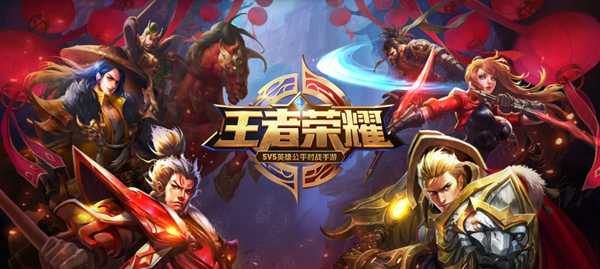Spotlight on Chinese Mobile Games: Arena of Valor (王者荣耀)

Released on November 26, 2015, 王者荣耀 (officially known as “Honor of Kings” in English) is currently the highest grossing mobile game in China. It is developed and published by Tencent (of WeChat fame) using the Unity engine exclusively for the Chinese market. This game alone contributes around half of Tencent’s total gaming revenue. The average user plays it about six hours a week.
Often referred to as China’s League Of Legends, the gameplay strongly resembles Riot Games’ worldwide smash hit from 2009. Riot Games is also owned by Tencent, and was first asked to recreate their game for smart phones but declined, saying it was not possible – so Tencent created its own mobile version, with smaller maps, shorter sessions of about 20 minutes each, and simpler controls.

The game style of Honor of Kings is a multiplayer online battle arena (MOBA) based on historical Chinese characters. Unlike League of Legends, the added simplicity of design and gameplay gives it a casual feel that makes it easy to play while on the go. Players can buy new abilities with actual money or by spending in-game currency earned by logging in regularly and completing tasks in the game.
By 2017, Honor of Kings had broken all records, with more than 80 million daily players and became the highest-grossing game of all time, as well as the world’s most popular. That same year, Tencent released it as “Arena of Valor” (at one time known as “Strike of Kings”), though some of the content and artwork was changed in the English version to appeal to a Western audience.
“I started playing it because everyone is playing it,” said Carrie Wang, a 28 year-old kindergarten teacher in Beijing. “It took a little while to get used to, but now I play it at least a little bit almost every day.”
Wang said she doesn’t play many other games, but this it’s an easy game to fit into her life, because you can choose whether to play a long or short session each time.

Xin Gao is a 35 year-old music professor at Truman State University in Kirksville, Missouri. Originally from Chengdu, China, he said he learned about Honor of Kings from WeChat friends in China and Chinese students at the university. He said the gameplay has the same appeal as League of Legends, but on the mobile phone instead of computer or console.
“For older players, especially people who don’t have a lot of time, they can still occasionally play and still have fun,” Gao said. “I know some adults who play it intensively.”
Gao plays the game two to three times a week. He says part of the appeal lies in the number of options and quality artwork the company produces to equip your in-game character with different skins and costumes. This aspect also appeals to Wang.
“I haven’t spent much real money to upgrade my character,” said Wang. “But earning in-game currency to do this is one reason why I keep playing.”

Honor of Kings is popular as an eSport. Interestingly, about half of its players are female. The servers host tournament seasons that encourage players to continue to improve their worldwide rankings, giving hardcore users an incentive to keep playing and upgrading.
The game even became the subject of an elective course at a university in Suzhou, where the teacher used the language in the game as a context for teaching English.
Honor of Kings has often come under fire from the Chinese government, which said it was “poison” for young people because of its addictive nature, claiming its content is a “twist of historical and cultural values.” In response, Tencent voluntarily limited the number of hours that children could play the game, starting in July 2017.
Though its status in Asian markets makes it the most popular game in the world by sheer numbers, the Western version has not turned out to be as popular or lucrative as the Chinese original, signaling a difference of preference between Chinese and Western gamers. According to AppAnnie, while Honor of Kings has remained at the top of the charts for some time in China, Arena of Valor is not currently among even the top 200 gaming apps in the USA, edged out instead by similarly-styled games Clash of Kings and Player Unknown: Battlegrounds (PUBG).
Developers wishing to sell their mobile games on the Chinese market can closely study the success of games such as Arena of Valor when tailoring their games to appeal to Chinese tastes.